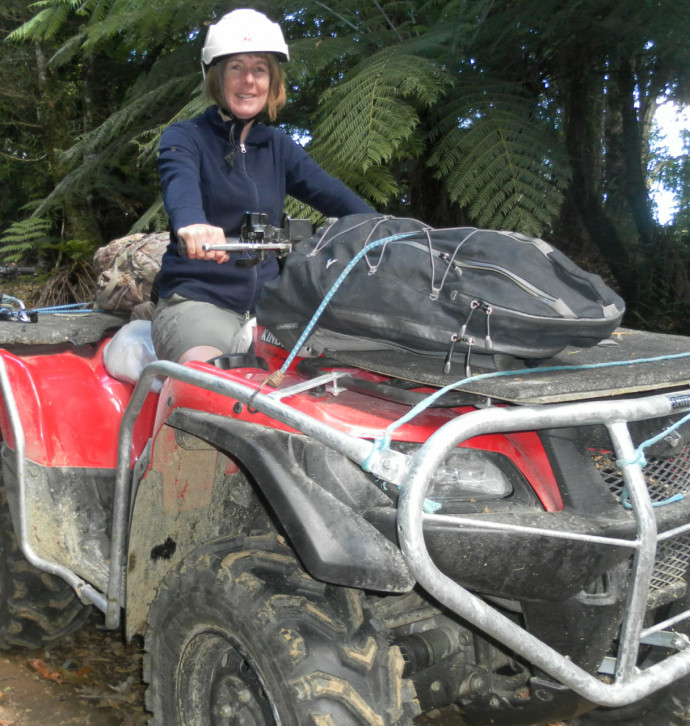Lepperton School - Debbie Leeming

2015 | Data: from field to end use
School: Lepperton School
Host: MAIN Trust
Region: Taranaki
Debbie is a primary teacher with qualifications in both primary and secondary teaching. She has been teaching junior students for fourteen years in Taranaki and the Coromandel. She now teaches junior students at Lepperton School just out of New Plymouth.Debbie has been hosted by Elise Smith of the MAIN Trust. The Trust is involved in helping community groups to use digital mapping tools to analyse and present information to be used in research, policy and decision making.
Debbie has been looking at how information about the living world is gathered in the field and then has entered and analysed so that it can be of the most benefit to the end user. She has been looking at how students and other members of the public can be more involved in this process as part of ‘citizen science’. Debbie has really enjoyed being pushed out of her comfort zone, both with technology and in the field.
Debbie has been in the field working alongside the Department of Conservation, Taranaki Regional Council and members of the Nga Motu Marine Reserve Society. She has been involved in a range of activities including looking at penguin nesting boxes and footprints, mussel sampling, and intertidal and vegetation plot surveys. Debbie assisted with activities for Seaweek including community snorkel days and Coastblitz.
Debbie has been working alongside marine biologists and ecologists and been asking lots of questions. She has been impressed by the willingness of scientists to spend their valuable time to share their expertise and passion for their subject. Debbie has gained a lot of new knowledge and skills that she is keen to take back to the classroom.
Debbie was able to attend the Mountains to Sea Wananga in Northland where scientists, educators and other interested members of the community looked at fresh water and marine reserves education. She also attended the forum ‘Mapping our Nature’ hosted by the Department of Conservation in Wellington. The purpose of the forum was to look at how technology can help to monitor and achieve conservation outcomes.
She has visited some beautiful areas on the Taranaki Coast, some of them only accessible by quad bike or helicopter. Highlights of the placement phase of the programme have been the opportunity to dive in the northern marine reserves and the development of relationships with her host and other scientists.
Debbie is very grateful to her host who has given so much of her time to help develop her understanding of science. She is also thankful to the Royal Society of New Zealand for the opportunity and support. She is looking forward to sharing her new skills, knowledge and enthusiasm with the staff and students of Lepperton School as they work together to build an effective science programme.
